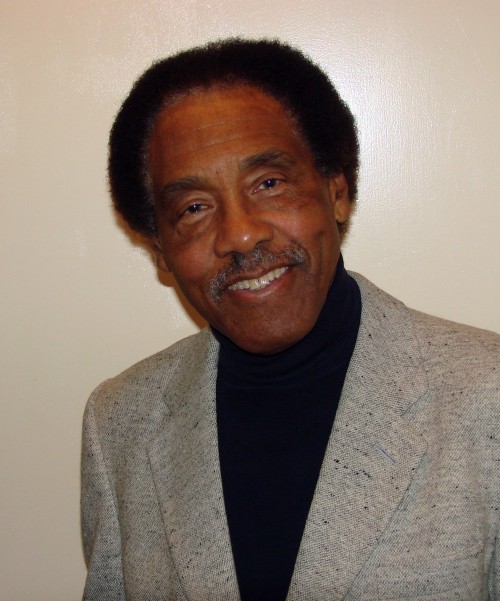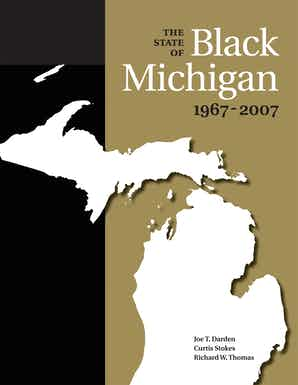Elissa Slotkin Seeking Federal Funding for MSU-led Work on Systemic Inequalities
August 20, 2020 - Diane Huhn
 Dr. Joe T. Darden was intrigued, but not surprised when U.S. Representative Elissa Slotkin reached out to him recently to discuss opportunities she was pursuing to address disparate inequities affecting Blacks and other People of Color in Michigan. Darden, a distinguished professor in the Department of Geography at Michigan State University and former Dean of Urban Affairs Programs, is an expert in the field having studied the impacts of systemic racism for more than 50 years.
Dr. Joe T. Darden was intrigued, but not surprised when U.S. Representative Elissa Slotkin reached out to him recently to discuss opportunities she was pursuing to address disparate inequities affecting Blacks and other People of Color in Michigan. Darden, a distinguished professor in the Department of Geography at Michigan State University and former Dean of Urban Affairs Programs, is an expert in the field having studied the impacts of systemic racism for more than 50 years.
Slotkin, a Democrat who represents the 8th district, was particularly interested in research spearheaded by Darden disseminated on an annual basis between 1984-1993 in a report known as the “State of Black Michigan.” These reports provided data and recommendations compiled by interdisciplinary groups of researchers, professionals, and stakeholders throughout the state. The annual report addressed issues affecting minorities such as housing, unemployment, education, business development, health, crime, political representation, civil rights, and the media. The state-specific publication was patterned after the State of Black America report that has been distributed annually by the National Urban League since 1976. This effort arose in response to the period of civil unrest in the U.S. in the late 1960s. The 2020 report, State of Black America Unmasked, was released earlier this month.
“Unfortunately, we were unable to continue the State of Black Michigan reports due to budget cuts,” said Darden. If Slotkin has her way, dedicated funding from the federal government could revive the work. On July 30, Slotkin introduced a measure to provide MSU with the funding required to conduct the research and begin publishing the report once again.
Darden is hopeful that the report can be revived, but is cautiously optimistic about what can be accomplished. “When we put these reports together years ago, we would always provide recommendations for how to address the situations we covered, whether it was housing, segregation, school inequality, healthcare, and so forth. We knew that if you were going to identify the problems, you needed to tell society what to do to solve those problems,” said Darden. “But you can see that the recommendations we made years ago to address these problems were never implemented, and therefore we still have those problems today. Those problems could have been addressed long ago if policymakers had acted, but we often found that there was a lack of will to take the necessary actions.”
 To be successful in addressing issues of racial inequality, Darden describes a three-phased approach—understanding what the problems are, formulating plans to solve those problems, and implementing those plans. He goes on to say that “We haven’t gotten to that last phase yet -- implementation.” If Darden looks to history as a predictor of the future, he believes it will require a tremendous effort to begin to see positive outcomes. “That’s not to say I’m pessimistic. I still have hope, but hope comes with action by those political officials and the general population who know what the problems are and what the solutions are, and then they come together to take the next step of implementation.”
To be successful in addressing issues of racial inequality, Darden describes a three-phased approach—understanding what the problems are, formulating plans to solve those problems, and implementing those plans. He goes on to say that “We haven’t gotten to that last phase yet -- implementation.” If Darden looks to history as a predictor of the future, he believes it will require a tremendous effort to begin to see positive outcomes. “That’s not to say I’m pessimistic. I still have hope, but hope comes with action by those political officials and the general population who know what the problems are and what the solutions are, and then they come together to take the next step of implementation.”
If Slotkin’s measure is successful in securing dedicated funding for the return of the work required to publish the report, Darden says he is willing to provide guidance and share lessons he learned while leading the work in the past. The measure passed the U.S. House of Representatives in late July as part of an appropriations package. However, it must still move through the U.S. Senate, which is currently in recess and not presently scheduled to reconvene until early September.
For further information, see The State of Black Michigan 1967-2007. The volume edited by Darden, along with retired MSU professors Curtis Stokes and Richard W. Thomas, was published in 2007. It incorporates additional data to expand on the reports the editors published annually between 1984 and 1993 with the Urban Affairs Programs at MSU and the Michigan Council of Urban League Executives.

